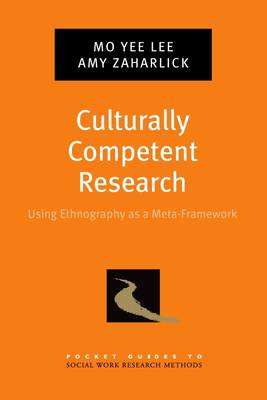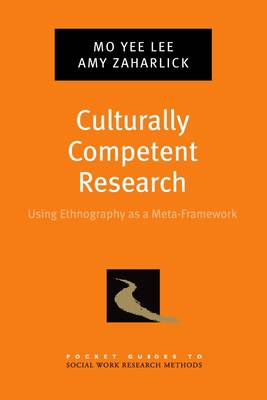
- Afhalen na 1 uur in een winkel met voorraad
- Gratis thuislevering in België vanaf € 30
- Ruim aanbod met 7 miljoen producten
- Afhalen na 1 uur in een winkel met voorraad
- Gratis thuislevering in België vanaf € 30
- Ruim aanbod met 7 miljoen producten
Zoeken
€ 77,45
+ 154 punten
Omschrijving
With the changing demographic landscape of American society, there has been a steady increase in studies and research on diverse populations and groups. However, it is not uncommon for these studies to be affected by methodological problems, including but not limited to the problems of overgeneralization, misuse of measurements, misinterpretation of findings, and the interpretation of differences not as diversity but as deficiencies. Simply put, the application of conventional research strategies with a different population does not qualify a study as culturally competent research. This pocket guide adopts ethnography as a meta-framework for conducting culturally competent research. This suggests the following components of culturally competent research: (1) a collaborative social relationship with the study group and community, (2) use of firsthand, long-term participant observation, (3) use of self as research instrument, (4) researcher as learner, (5) a contextual view of phenomena, (6) a holistic perspective, (7) an interactive-reactive research process, (8) a cross-cultural frame of reference, and (9) a spirit of discovery. Each phase of research is described and incorporated throughout the process, from framing and designing the study; to data collection, management, and analysis; to final analysis and report writing; and to dissemination to a variety of audiences. With a practical, step-by-step approach, this book provides social work researchers, doctoral students, and professionals with a model for conducting culturally competent research with and close to the lived experience of diverse populations and groups.
Specificaties
Betrokkenen
- Auteur(s):
- Uitgeverij:
Inhoud
- Aantal bladzijden:
- 180
- Taal:
- Engels
- Reeks:
Eigenschappen
- Productcode (EAN):
- 9780199846597
- Verschijningsdatum:
- 31/01/2013
- Uitvoering:
- Paperback
- Formaat:
- Trade paperback (VS)
- Afmetingen:
- 140 mm x 206 mm
- Gewicht:
- 249 g

Alleen bij Standaard Boekhandel
+ 154 punten op je klantenkaart van Standaard Boekhandel
Beoordelingen
We publiceren alleen reviews die voldoen aan de voorwaarden voor reviews. Bekijk onze voorwaarden voor reviews.











